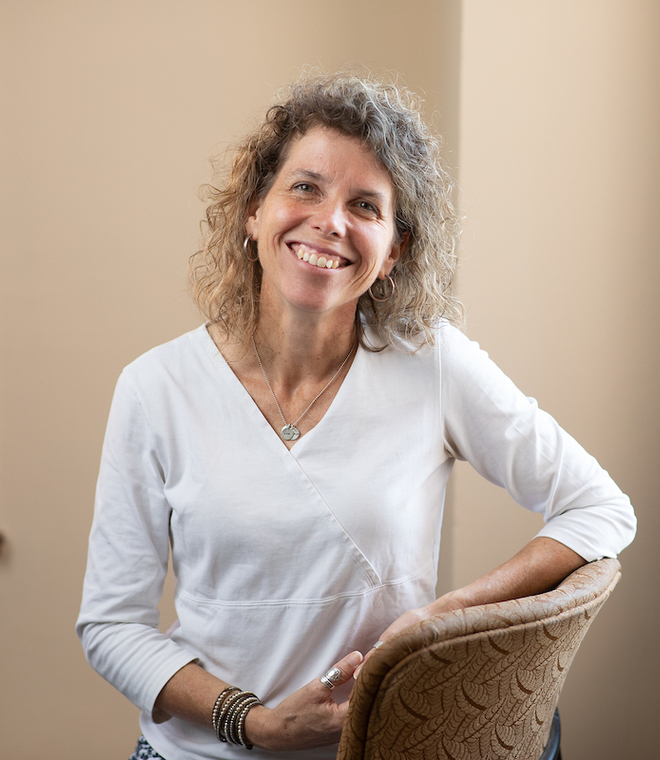College Communities Work to Prevent Sexual Violence
New Jersey educators to share approaches to campus sexual violence response and prevention at Rutgers

Educators from across New Jersey gathered at Rutgers University on Thursday to share effective approaches to campus sexual violence response and prevention, and to collaborate on future goals and plans to strengthen higher education’s response to campus sexual violence in New Jersey.
N.J. Attorney General Gurbir Grewal and Zakiya Smith Ellis, the New Jersey Secretary of Higher Education, opened the New Jersey Conference on Campus Sexual Violence, which covered topics such as exploring how higher education institutions and high schools can partner to address these issues before college, providing and promoting needed services on campuses for survivors and ensuring students’ rights are protected if they are accused of sexual violence.
Victoria Banyard, a professor in Rutgers’ School of Social Work who has dedicated her academic career to finding better ways to help communities prevent and respond to interpersonal violence, talked about how universities can develop prevention programs that build connections to create campus communities free of sexual violence.
Rutgers Today spoke with Banyard about prevention efforts, past and future, on college campuses.
It has been two decades since the federal Office on Violence Against Women began providing grants to colleges and universities to improve awareness and prevention of sexual violence on campuses. What is the biggest change that has occurred?
One of the most exciting shifts to see is that there is more and more of an intentional focus on prevention. The first focus was on response because that’s important: People are harmed. Perpetrators have to be held responsible and response is critical. The rise of student activism and the national response in the previous administration with the White House Task Force to Protect Students from Sexual Assault led to policy changes to create change on campuses. All of those things helped put a spotlight on work that has been going on for a while to prevent getting to that moment of crisis.
What is working on college campuses?
We’ve found what works is a multipronged approach. We know through our work at Rutgers, and work I’ve done for the last couple of decades, that bystander training helps to move the needle. Bystander intervention training is promising because it helps find a way to give everyone a role so prevention is held by the full community. It has helped us move beyond “don’t be a victim” and “don’t be a perpetrator.” It says, this is a complicated problem and everyone has to do their part – leadership, students – everyone.
Efforts including the Green Dot bystander education strategy and SCREAM Theater here at Rutgers-New Brunswick that aim to shift campus culture and increase proactive preventative behavior through education and intervention training are making a difference. Research, including a study at Clemson University that showed promising findings from a student-focused prevention program that combines alcohol education with sexual assault prevention and bystander training, is helping provide a different framework for prevention. Just last week I got to observe an innovative healthy relationships workshop by the Office for Violence Prevention and Victim Assistance at Rutgers-Camden. These new conversations are happening right in our own community.
What is needed to create campus communities free of sexual violence?
We have learned a lot from all areas of prevention, but we need to get out of our silos and create interconnections among them. It’s true there are unique aspects and approaches to sexual violence, dating violence or substance abuse, for example, but there are also some common risk factors and common prevention approaches. We have to be thinking of innovative ways to interconnect them.
I also think we need to do much more to promote the role everyone plays in prevention. The focus on bystanders is a step in the right direction, along with work being done on building resilience and well-being, but we haven’t gone far enough. We need to continue to look beyond individuals and changing what they do to changing policies and environments. We also need to reach back and start earlier, connecting efforts on campuses to prevention in middle and high schools in our communities. Prevention has to be done by large numbers of people – students, faculty, administrators – if we are really going to create a culture change.
The New Jersey Conference on Campus Sexual Violence will take place on Thursday, March 28, from 9 a.m. – 4 p.m. at Rutgers University. It is hosted by the Center on Violence Against Women and Children (VAWC) at Rutgers’ School of Social Work. Learn more about the daylong event.